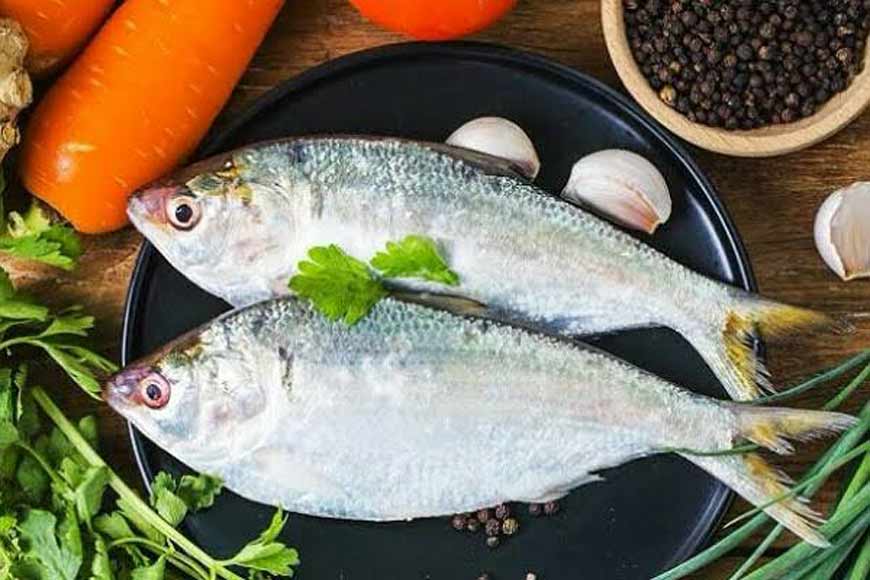A fishy love affair - Mache Bhate Bangali
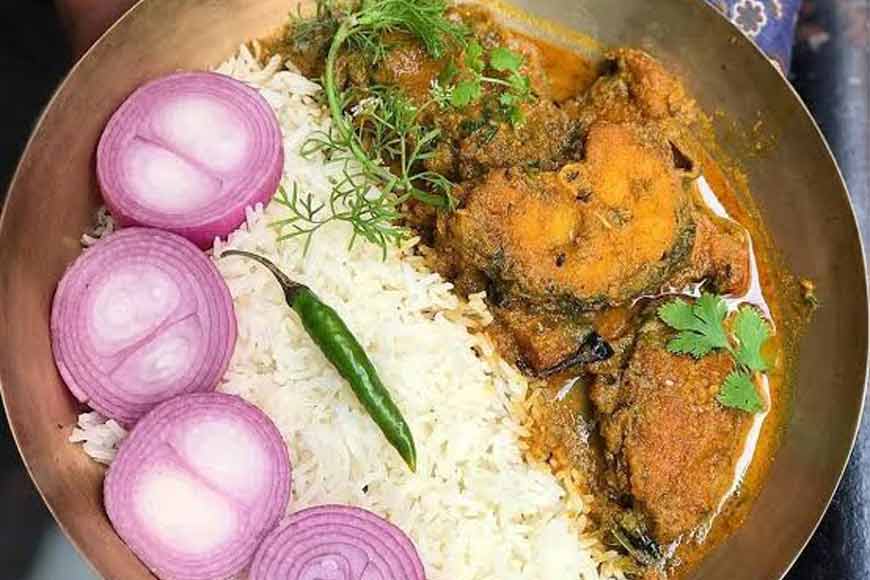
Bengalis are widely known for being avid food lovers. Bengali cuisine, which has a long and varied culinary heritage, features a wide range of flavours and ingredients. Bengal's native cuisine is significantly influenced by its environment and climate, which are distinguished by its fertile soil and extensive network of rivers and water bodies.
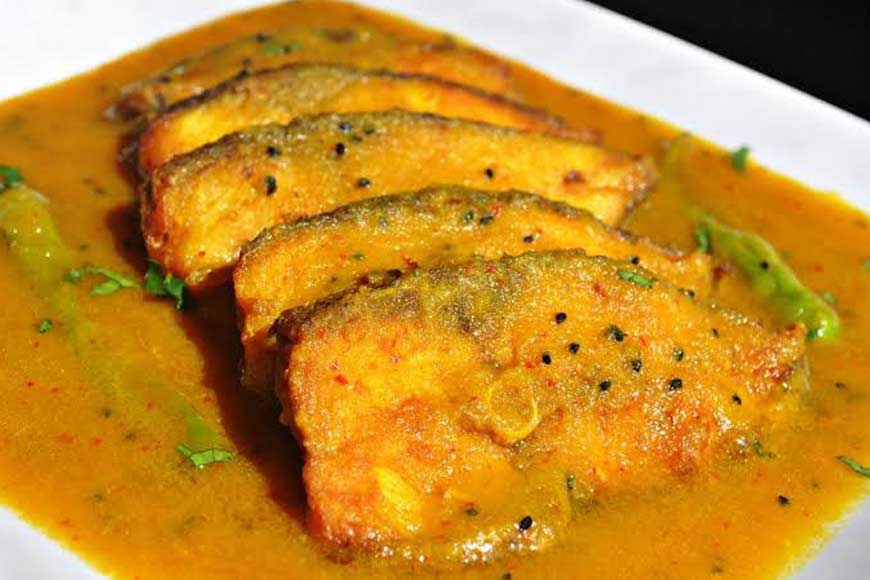
Food has a significant role in Bengali culture and social life. Bengalis enjoy getting together with friends and family for delicious meals and use food as a way to show how much they care and love someone. Bengalis greatly value fish and seafood as the foundation of their cuisine. In fact, there is a Bengali proverb that says, "Baro Mase Tero Parbon," highlighting the importance of celebration with a fiesta in Bengali culture. Bengalis are frequently referred to as Maache-Bhaate-Bangali for their fondness of fish. Is there a reason behind Bengalis' fervour for fish, though?
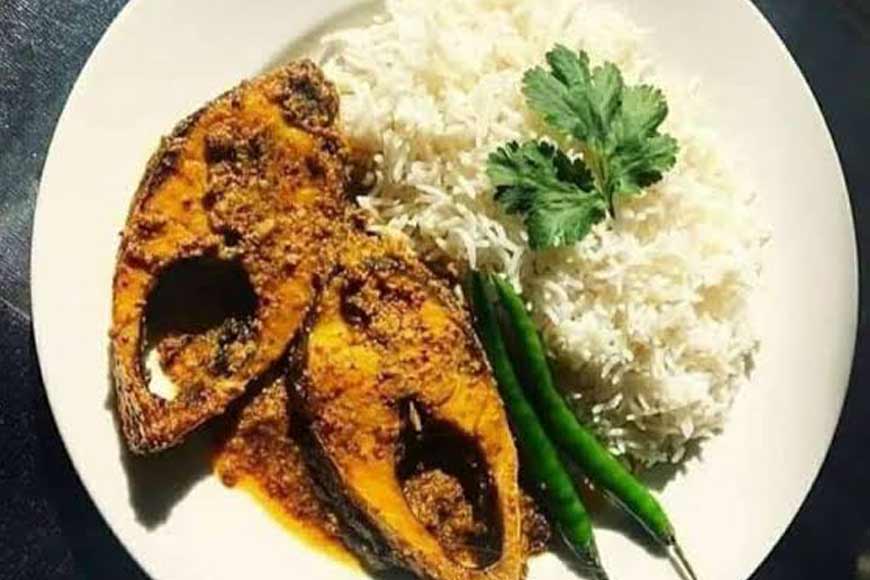
Fish is a quintessential part of Bengali cuisine and has long played a significant role in the social and cultural identity of Bengalis. The love for fish is embedded in Bengali culture, and it has become synonymous with their identity. Bengali food has a long history that begins during the Mughal Empire when Bengal was introduced to Persian and Turkish culinary traditions by the Mughal rulers. Bengali fish recipes are distinctive and tasty because of the region's availability of freshwater fish and the Mughal culinary influence. Since the land was fertile and food and water were easily accessible in the past, people tended to settle near rivers. Several people started overindulging in fish consumption, and some turned to it as a source of income. Another reason for this enthusiasm is that fish used to be Bengal's primary protein source. Fish is a high-protein food and a primary source of phosphorus with several health benefits.
With the rise of Vaishnavism, dal became a popular healthy substitute for fish and meat. According to a study of the medieval Bengali scriptures, which provide us a thorough grasp of the eating traditions of that time, the basic diet of a Bengali during the early medieval period consisted of rice, vegetables, fish, shak (leafy vegetables), meat, milk, and fruits.
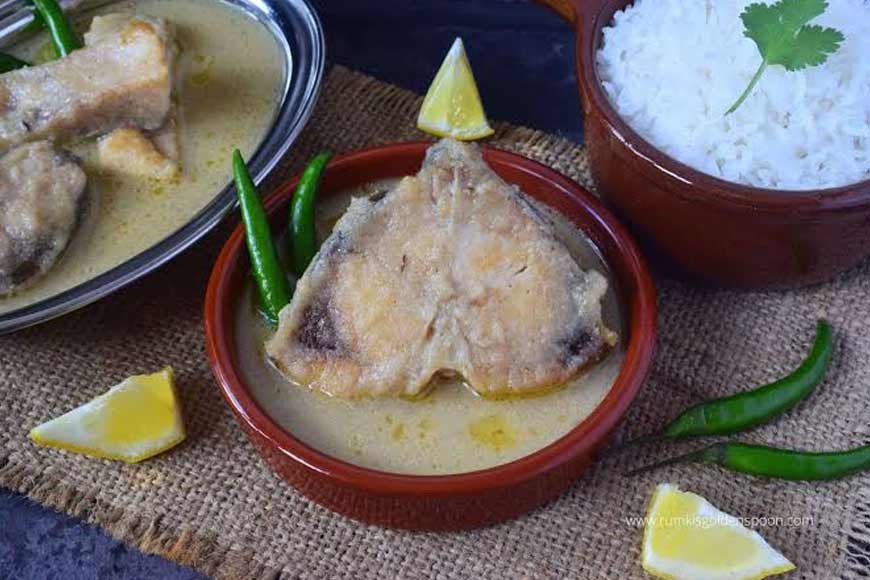
However, with time "machh bhaat" (fish and rice) became synonymous with the staple cuisine for Bengalis. They find it impossible to think of their platter sans fish. The saving grace for Bengalis are machh bhaja, machher jhol, machher jhal, doi machh, bhapa machh, machher tok, macher matha diye daal, and many more.
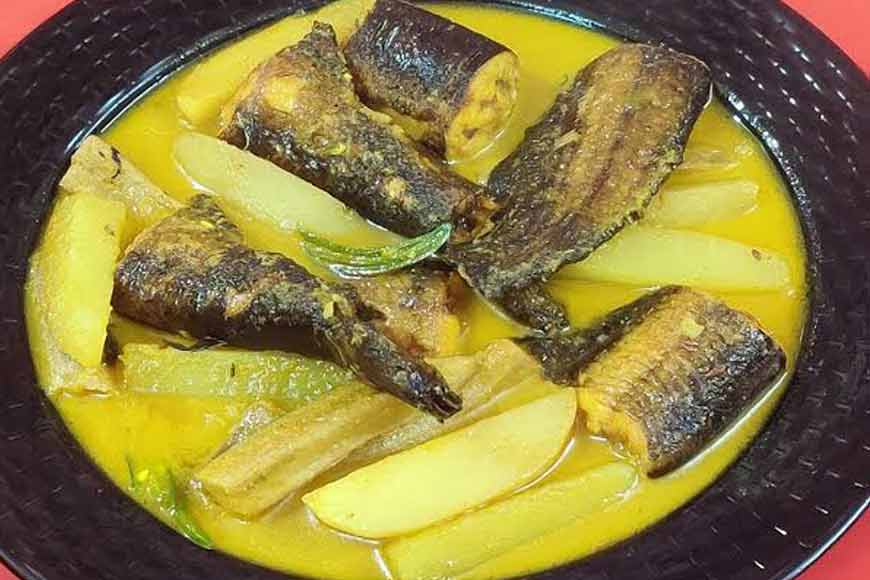
All jiol machh (fishes with a secondary respiratory organ that resembles a lung that can survive outside of water for a long time) are very nutrient-dense and are frequently prescribed for recovering patients in traditional medicine. Another fish delicacy known as shing machher jhol, (where singi fish pieces are cooked with green banana and unripe papaya) is easy to digest and so prepared specifically for people who are ailing to hasten the recovery process. Fish is beneficial for your health since it is one of the best sources of lean protein and is loaded with vital nutrients like omega-3 fatty acids.
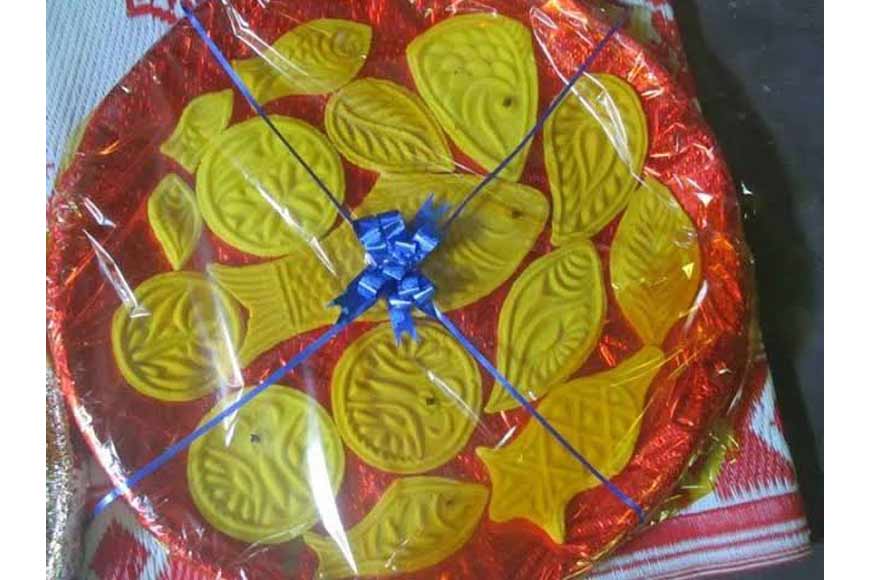
For Bengalis, fish are associated with cultural values in addition to serving the gastronomic purpose. It serves as a necessity for all celebrations since Bengalis consider it to be incredibly pure. Many of our rituals, traditions, and everyday activities — including Durga Puja, weddings, and even funerals — involve fish in a significant way. Bengalis love fish so much that they make sweets in the shape of fish for tattva (an array of wedding gifts). The newlywed Bengali bride is welcomed into her new place by being shown a fish that is still alive. She begins her happy new life with the sight of a decorated fish. Some people claim that fish symbolise prosperity and the influx of resources and money. Some assert that the fish's bridal attire is meant to represent fertility as well as the bride and her wedded life.
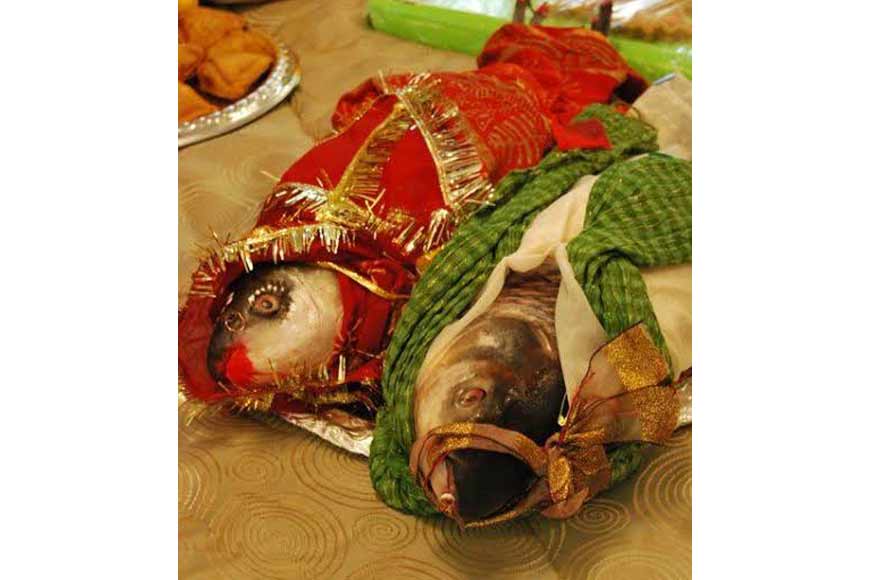
Bengalis enjoy a happy time in the fish market exchanging fishy tidbits with both vendors and other patrons. Fish and Bengali sociocultural practices and traditional beliefs are intricately intertwined. Thus Bengalis stand out with a unique identity based on their passion for fish.
